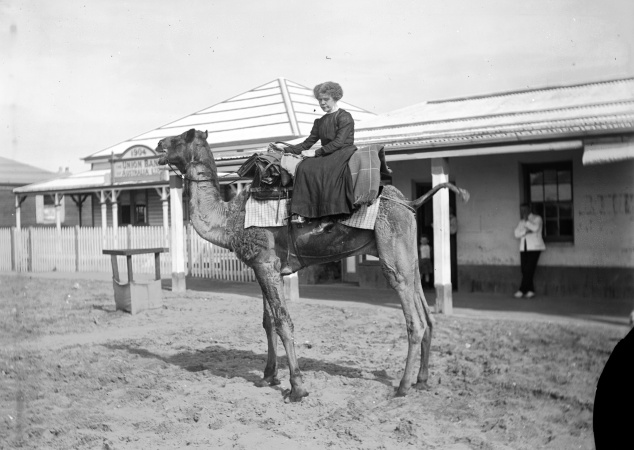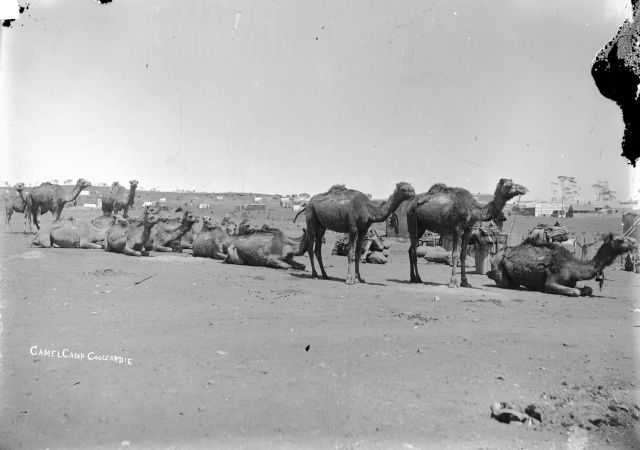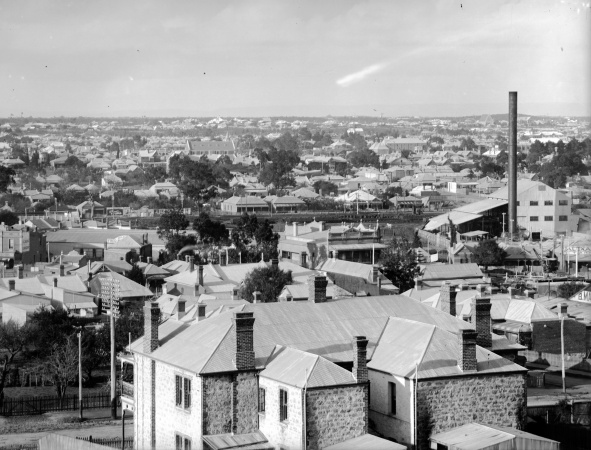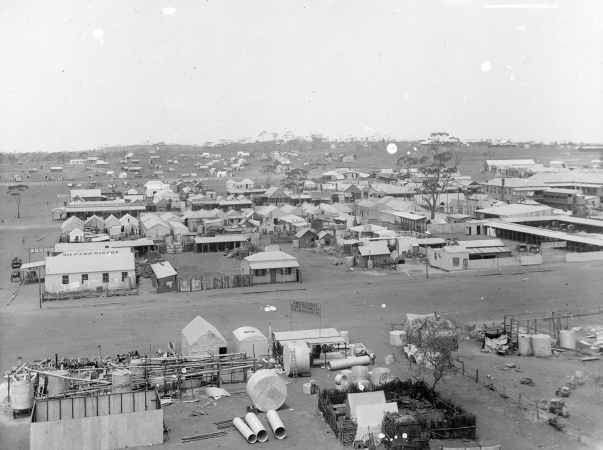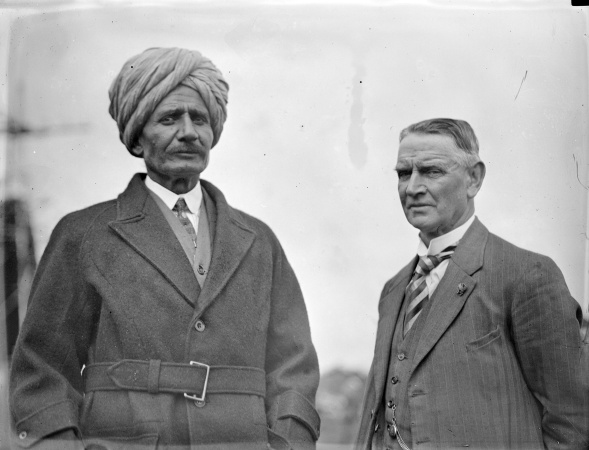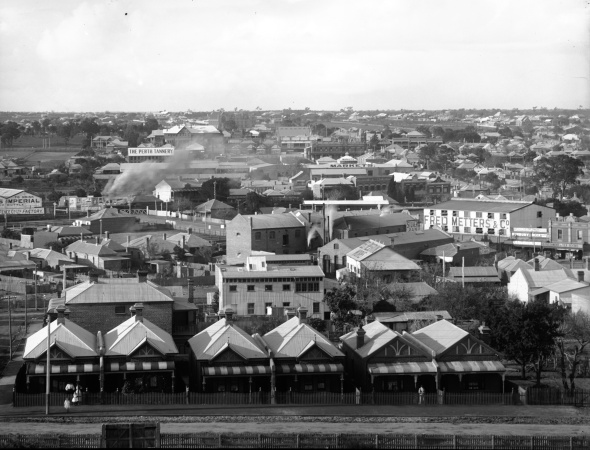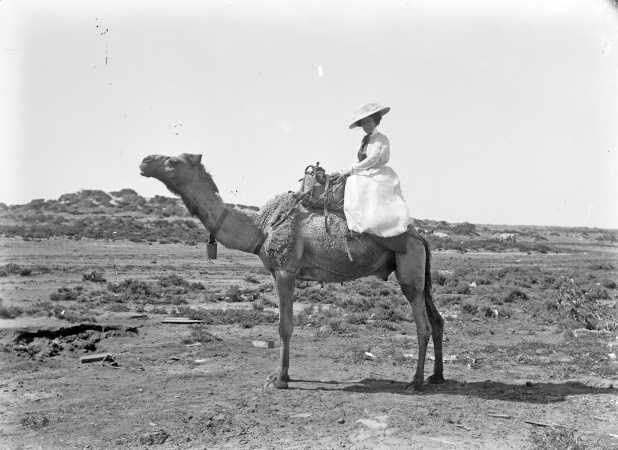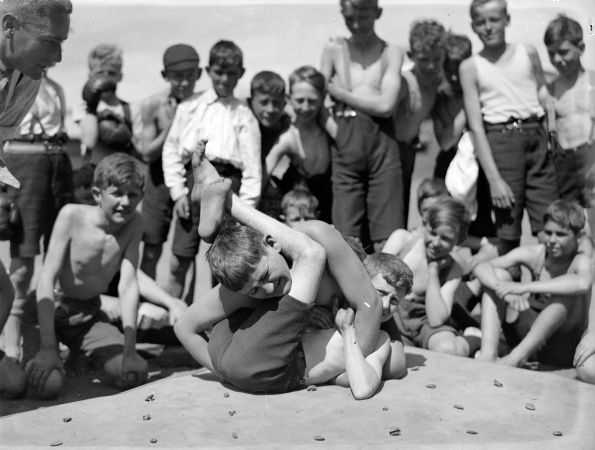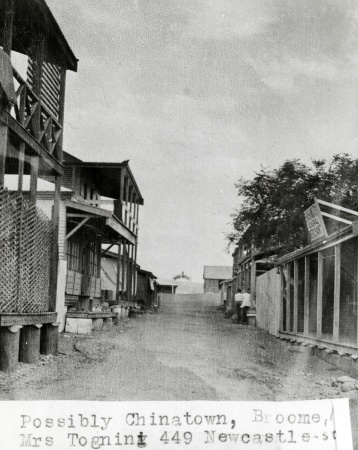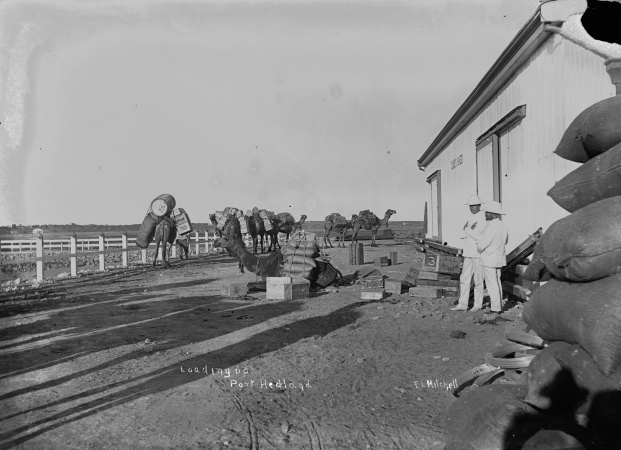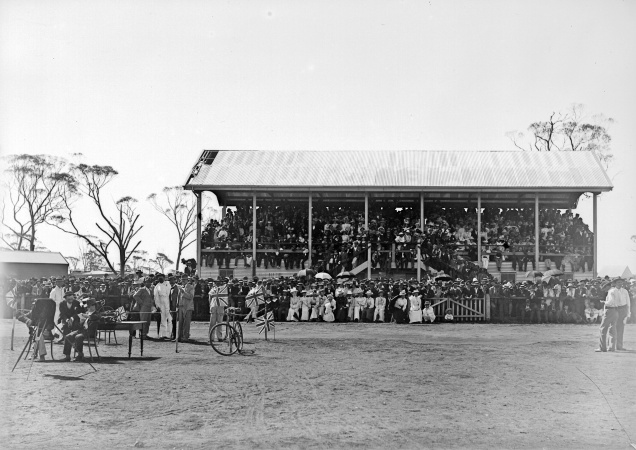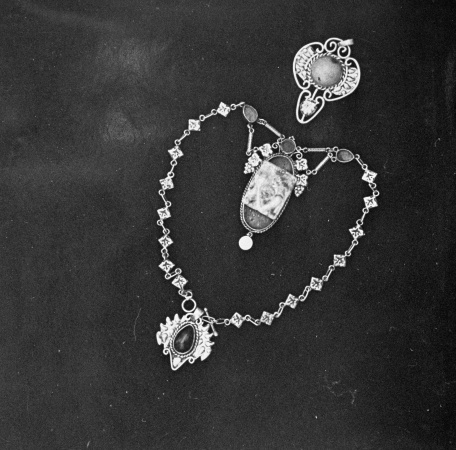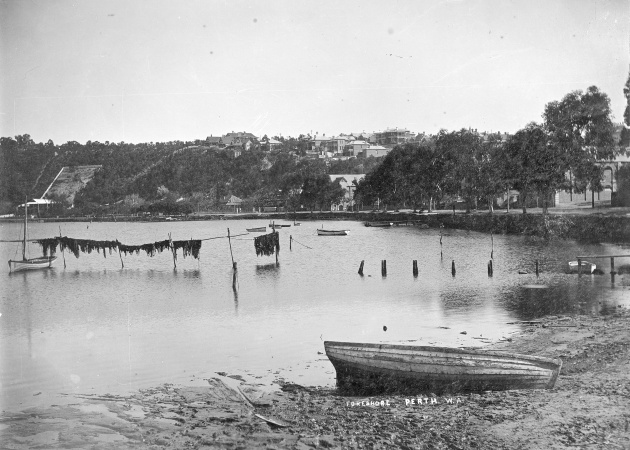
The story below is based on an extract of Ameer Dost Mohamet's (1904 -1987) oral history. Ameer's oral history contains graphic descriptions of great adversity, which should be read at the reader's discretion.
I was born in West Perth in 1904, the son of a camel proprietor.
My father was a young prince from India, Ameer Dost Mohamet. He came to Western Australia when he was twenty-one to have a look at the opportunities for camels. When he discovered there were big opportunities, he returned to India and brought twenty-five camels back to Coolgardie.
My father was very short, around about the five-foot-four mark. He was a terrific wrestler and used to wrestle with young camels for training. He was a strong man, he'd pick up a bale of wool and put it on a dray just like that. The local blacksmith described him as a great, honest, and straight man.
My father had huge brown eyes with long lashes. They said the more you looked at him the more you wanted to look at him, because of his beautiful big brown eyes and long eyelashes. And I suppose this is how my mother Annie fell for him. They met in Coolgardie and my father used to take her to the races there. He used to buy her many clothes and jewels which cost him hundreds of sovereigns. She was very handsome and everyone that used to see her would admire her in her glittering jewels.
My mother was of German descent and was only sixteen when they married in Broome in 1896. My grandmother wanted to give them permission for them to marry in Coolgardie, but my uncles were against it. So my parents, daring and determined, went cross country by camel up to Broome, armed with water, food, and a double-barrelled gun.
My father bought a sheep station about six miles out of Port Hedland. He brought the camel teams up from Coolgardie and they camped on the station. My mother's family followed, bringing trouble with them.
My father helped set them up in Port Hedland thinking it would make them sweet. He set my Auntie Agnes up in the pub, Poondina, to make her happy. He set up Uncle Harry in a bakery and Uncle Billy in an electrical business.
My uncles used to come to my mother's place drunk, and of course, my father never drank nor smoked, and neither did my mother. He asked that they keep away from his home and let them live a decent life, but they kept coming.
One night in 1909 there was a fight and my father broke Uncle Harry's arm and threw my other uncle out the door. Then in the early hours of the morning, they came back and hit him across the head with a three-by-two jarrah piece of wood. And that's when he was murdered.
My uncles did six weeks in jail and got out of it. My mother was blamed by my father's men for helping to save her brothers from being hanged or long-term jail.
Within twelve months of my father's death, my mother took us to India to settle up with some money and bring my eldest brother back to Australia. She was determined to go despite fears for her safety by family and government officials.
In India, we lived in a castle out of Karachi for eighteen months. I remember they made a big fuss about my mother - they put her on a white horse and made a big long procession. I also remember a terrible lot of rice and curry.
My mother had a growing feeling that something bad was going to happen to her. She tried to leave India quietly with the help of Sergeant Lintle (her British protector) but the word leaked out that she was leaving.
They came through the window with revolvers to shoot my mother but then they saw my youngest sister Vi lying on her arm. So they didn't shoot, instead, they pulled out Gurkha knives and put the light switch out. My eldest sister Lil had seen the knives and screamed.
I remember kneeling alongside my mother, trying to wake her up. It was so bad I just can't relate it. It was pretty crook. I knew Mum was gone. For a long time, I thought that everyone I saw was going to kill me too.
Sergeant Lintle came over in the morning from his camp half a mile from the castle and saw us like that. He went stone mad and took us off quickly to Karachi Hospital, where we stayed nearly a month until the court case. Lil recognised the murderers as father's servants from Australia and they were hanged.
We were escorted to Western Australia and returned to Trafalgar Road where my grandmother and my uncles were. They should have looked after us but no, we were chucked out despite my grandmother's hell of a protest and sent off to orphanages.
Story was posted on Facebook on 31 March 2024.
Unfortunately we don't have any pictures of Ameer or his family. The below photographs are a representation of the places, activities and era from our history catalogue.
Find out how to donate to the the State Library Collections.
Extract of Ameer Dost's oral history, conducted between 1978 and 1980 and interviewed by Michael Adams. Ameer, also known as Dusty, changed his name to Arthur Doust after the murder of this mother. The original transcript is 711 pages long and includes graphic descriptions of great adversity that should be read at the reader's discretion. You can listen to all the sound recordings or read the transcript on our catalogue (OH405).
